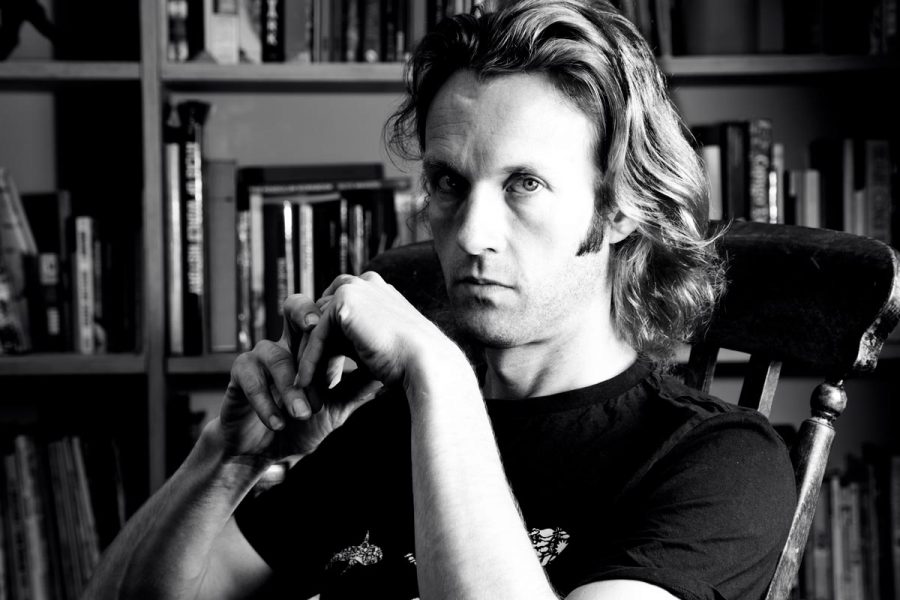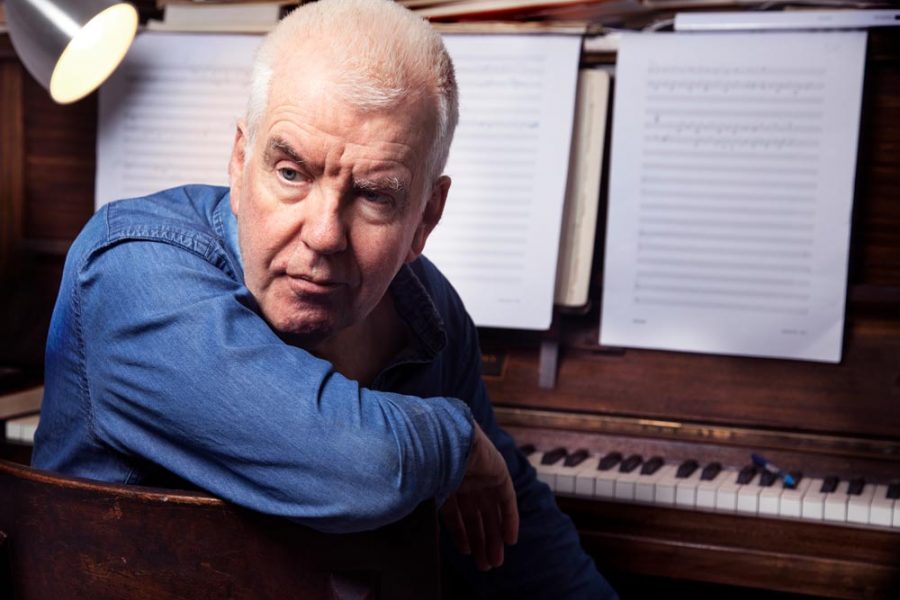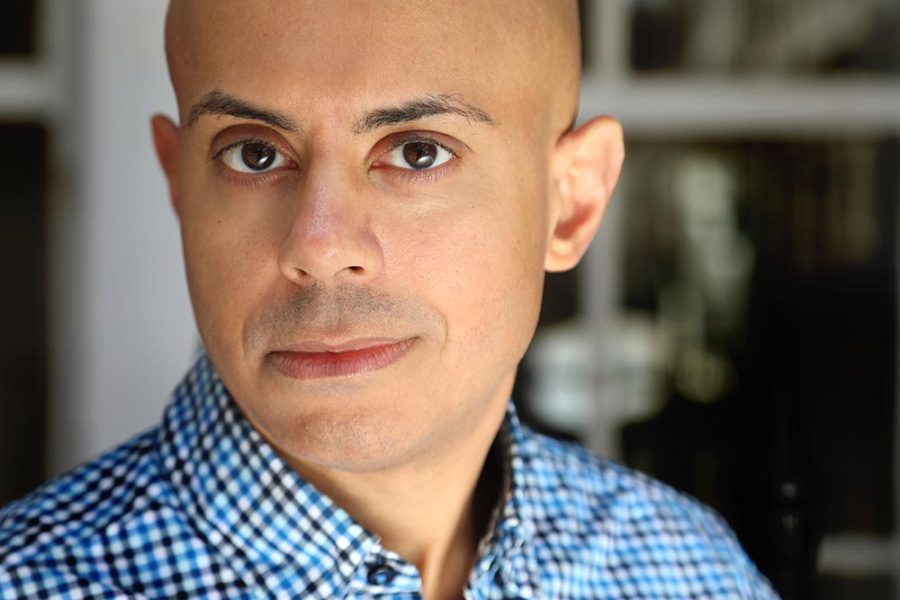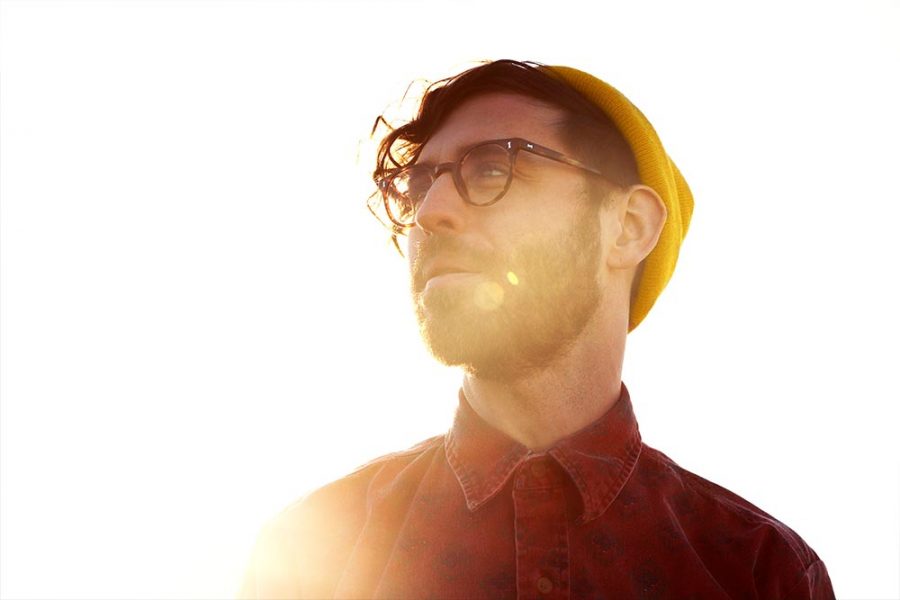From Silverado to 34th Street: Bruce Broughton

May 2015
Words by
Emer Nestor
Photos by
Frances Marshall
American award-winning composer Bruce Broughton is best known for his iconic film scores to Silverado, Tombstone, Miracle on 34th Street; and his television themes to JAG, Dinosaurs, Tiny Toon Adventures, Dallas, Quincy and Hawaii Five-O.
He has been nominated for an Oscar, a Grammy and 22 Emmys, having won the latter award a record 10 times. Broughton has received numerous commissions from the Cleveland Orchestra, the Chicago Symphony Orchestra, the Los Angeles Chamber Orchestra, the National Symphony, and members of the San Francisco Symphony. He is a lecturer in music composition and orchestration at UCLA and has taught film composition at the University of Southern California. Broughton currently serves on the ASCAP Board of Directors. He speaks to Final Note about his thoughts on classical music and his compositional style.
I often say that I entered college with “Tchaikovsky ears". As a pianist, I was a good reader, and most of what I knew musically was piano music."

Tell us about your early music studies in piano and horn.
When I was about 7, I began studying the piano. At the same time, because my family was a family of brass players who worked for The Salvation Army, I had to learn trumpet. I took to the piano immediately. I was never too interested in playing a brass instrument and was only mediocre at it, but I played horn in school bands and finished my brass career in the US Army. I studied the piano well into college. As a brass player, I played in school bands and even spent a season with the Monterey Symphony playing 3rd horn when I was in the Army.
Did you have much of an appreciation for classical music at this time?
I often say that I entered college with “Tchaikovsky ears”. As a pianist, I was a good reader, and most of what I knew musically was piano music. At the same time, however, I knew the Beethoven Symphonies, a lot of Tchaikovsky, Rachmaninoff and Gershwin — music that was melodic and harmonically pleasing to the ear. My musical taste at the time was pretty conventional. It was equivalent to the level of the average concertgoer today.
What are your fondest memories of your time studying composition at the University of Southern California?
I had one teacher who stood out, whose name was Anthony Vazzana. I studied orchestration privately with him and learned an enormous amount. Over the many years since, as I’ve acquired a great amount of orchestral experience, I’ve never found anything he said to be anything more than consistently valid and on the mark. Unfortunately, the rest of my studies during that time at university were not too memorable. Privately, I studied with Emil Soderstrom, a composer who had studied with Carl Nielsen. My basic writing technique began with him. He was tough. He’d go over every note I wrote and then say something like, “Well, this wasn’t a good idea…”
Did the course prepare you for life as a composer in any way?
I never intended to become a composer and took music at university only because it was familiar — thinking I might find something more interesting while I was there. At least, that’s what I thought I was doing. In actuality, I think I became a good sight-reader as a pianist because I was constantly reading unfamiliar music — preparing myself for a future as a composer. But as a composer, I learned much more after I graduated, especially once I began composing for television. Theory is important, but the ‘doing of it’ is where you find your technique.
Why did you decide to follow a career in writing music — were you inspired by anybody in particular, or was it an innate driving force that lead you down that path?
I was driving in the car in my last year of university, wondering what I was going to do with my life, but getting excited by a song on the radio. It struck me that I would like to be able to write music that made others feel something, similar to what I was feeling at the time. I quickly decided upon motion picture music because it was of a length and style that interested me, and a captive audience usually listened to it. I felt that it definitely had to mean something emotionally.
After leaving university, where did you go to learn your craft?
I was fortunate to get a job as an assistant music supervisor for CBS Television. Neither the job nor the music department exists any longer, but for me at the time it was a total immersion into music for film. CBS produced television shows like Gunsmoke and Hawaii Five-O, and these were the first programs I worked on. Eventually, CBS began producing feature motion pictures, as well. Although my initial job was to ‘track’ the shows with library music, I began composing music for the CBS TV series while supervising motion picture recordings, meeting and working with many top film composers in the process — composers like Jerry Goldsmith, Henry Mancini, Laurence Rosenthal, Michel Legrand, Leonard Rosenman and Quincy Jones…even Bernard Herrmann. I was able to attend their recording sessions and study their scores first hand. I worked my way up to become Assistant Director of Music, but it was essentially a management job, which didn’t interest me, and I eventually left CBS to become a full time composer. But before I left, I worked at almost every job a person could have in film and television music, including licensing, hiring composers and negotiating with the union.

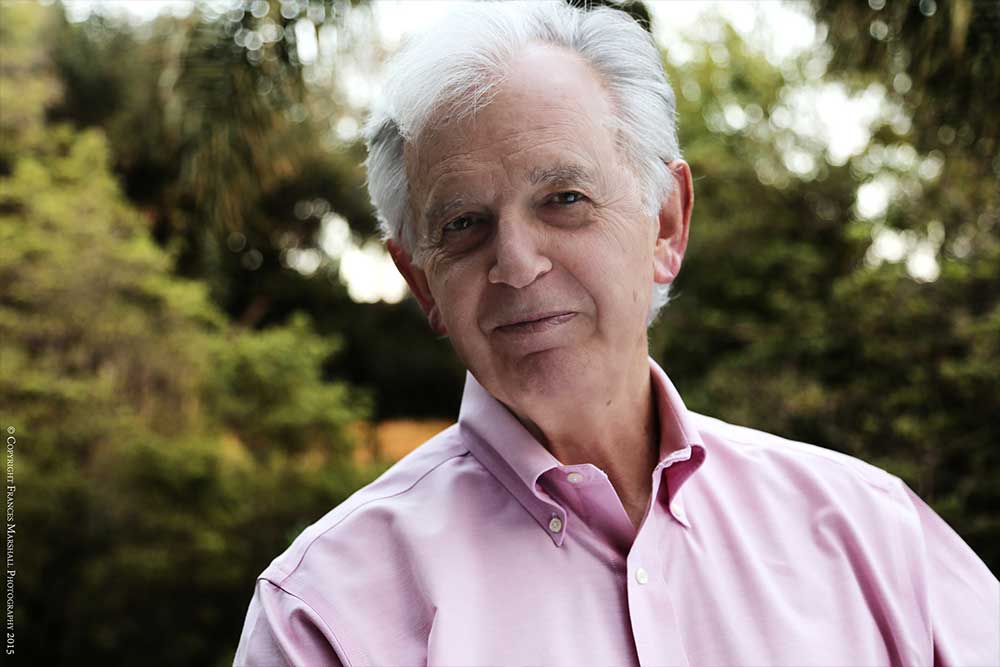


My initial push was in film and television, but I was always writing concert music. As I became busy as a freelance composer, I would write concert music on my time off."

Having started in film and TV music, was writing contemporary classical music on the agenda?
My initial push was in film and television, but I was always writing concert music. As I became busy as a freelance composer, I would write concert music on my time off. When I was working entirely in television, I always had the summer months to myself. When I was busy doing television series, it was often a matter of working 14-16 hour days, 6 or 7 days a week. There wasn’t much time for anything else. But the TV season was generally from September through April.
Is there a vast difference between composing for TV as opposed to Film?
The biggest difference is the size of the screen. When the actors are 30 feet tall, the music can be a little more discreet than when the action takes place on a smaller platform. In television, there is always the distraction of the environment, whereas with a film the action takes place in a large, dark closed-in room. You don’t have to work too hard to get the audience’s attention in a theatre.
Are you ever concerned about your music playing ‘second fiddle’ to the film or TV shows for which you write, or is that part and parcel of the industry?
Film music is always and only accompaniment. Whether it’s loud or occasionally important in itself, it’s what it is because of where it is — how it’s placed in the film. In a film score, the composer literally measures every note, because it has to be synchronized with the picture. The film strictly determines every element of a film score. The only reason music exists in film is to help tell a story. No one hires a composer for a film to write pretty flute lines. I generally don’t get concerned about this, but I’ll admit to getting irritated or disappointed at times on how the music is used after I’ve composed it. In the United States, all film composers work under a condition called ‘Work for Hire’. Aesthetically, it can be soul-sucking.
How has your compositional style evolved over the years?
If I’m working on a film, I adapt my style to the story I’m helping to tell. For example, Silverado has a lot of exciting and aggressive out-of-doors music with big themes and guitars because it’s a western. Miracle on 34th Street uses choirs, chimes, big brass and pretty melodies to help tell a Christmas story.
Do you have a preferred medium in which you like to write?
At the moment, I much prefer writing concert music. No one tells me what to do and I can freely express myself. When working on a film or a TV show, I’m working on demand — on behalf of a director or producer who would do my work if he could, but can’t.
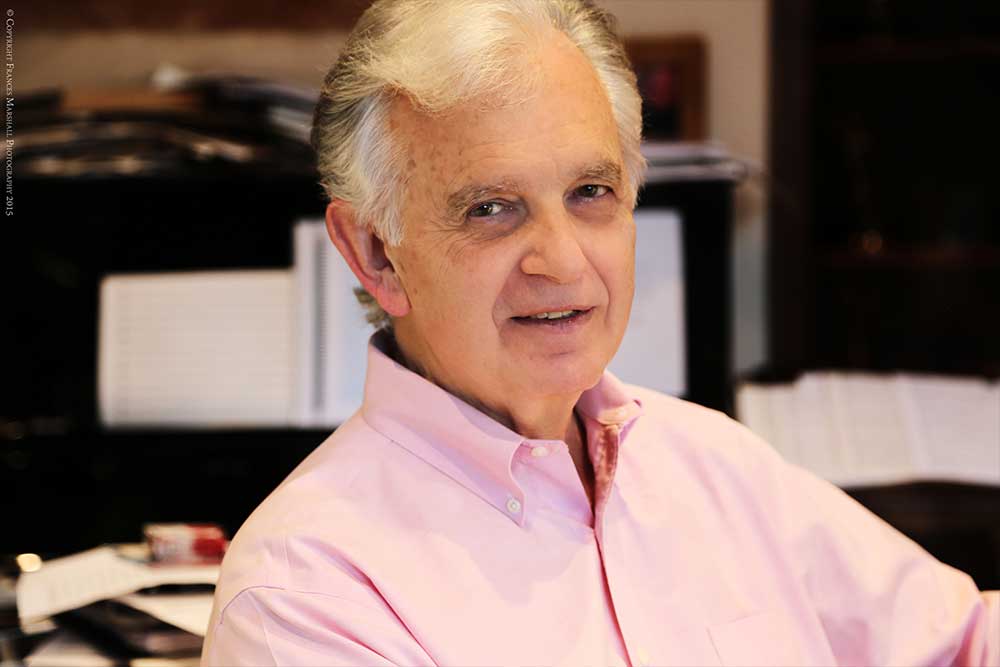


Are there any classical works that hold particular significance for you?
Many of them! Some composers, like Bach…I never get tired of. I could play The Well-Tempered Clavier every day of my life and never get bored. The orchestration in something like The Rite of Spring is always interesting to me. I have such a long list of favorite composers, it’s ridiculous, but they all have something worth looking at and listening to.
What are your thoughts on the value of classical music in the arts today?
It’s easy to sound like an old codger when talking about ‘the value of classical music’. I listen to a lot of music and I have a lot of friends who are composers. Some of them are very good. I’m always interested in new ideas, but I’m not interested in new ideas that are poorly executed, and there’s a lot of that sort of thing. Stravinsky said that technique had been better in former years, but he was referring to composers like Machaut and Ockeghem. I do a lot of teaching, and I’m always surprised at how little students learn at the start of their studies — how little they know about basic music. With synthesizers and samplers available, it’s easy to make pretty or interesting sounds and pretend that it’s music — but music is more than that.
On the other hand, as much as I love the music, I get tired of seeing Beethoven and Ravel played over and over at concerts. Those over-performed pieces become the standard for what ‘real music’ is supposed to be. At the same time, music that doesn’t move me or is poorly constructed doesn’t interest me, and a lot of contemporary music falls into that category (although in fairness, most music — especially from the 19th century, falls into the same group). Contemporary classical music is having a tough time finding an audience, and many people turn to film music to fill the gap, because the styles are familiar and the music is emotional and often dramatic, i.e. understandable and moving. But, as mentioned above, film music is really only accompaniment, and it always refers to the film. So, when one listens to a film score, one is usually reliving the film, as well. The music that includes the main idea as well as the accompaniment is the sort of music I’m interested in. Classical music today is a real work in progress. It’s trying to find an audience.
Do you have any advice for aspiring young composers?
There’s no shortcut to learning to write well. Like learning to play an instrument, the only way to become a good composer is to practice, and the only way to practice is to constantly compose and then listen to what you wrote. My teacher reminded me that “the most important part of the pencil is the eraser”. The older I get, the more I understand what he meant.
Do you have any advice for aspiring young composers?
I recently finished a 10-hour TV mini-series called Texas Rising with my friend John Debney. The show premieres in the States at the end of May. I’m writing the opening piece for a concert at the Hollywood Bowl in August for the International Horn Symposium that will feature four horn quartets from the Los Angeles Philharmonic, the New York Philharmonic, the American Horn Quartet, the Berlin Philharmonic and a soloist, the extraordinary horn virtuoso Radek Baborák (former principal horn of the Berlin Philharmonic) — sixteen horns and a soloist! This is the piece that really has my attention! I’m having a great time on it!
All images displayed in this article are subject to copyright.
Share this article


